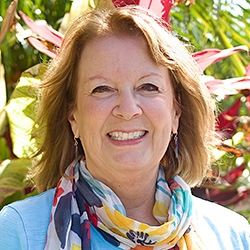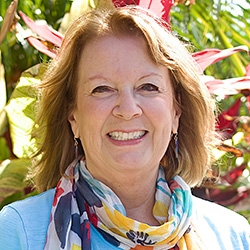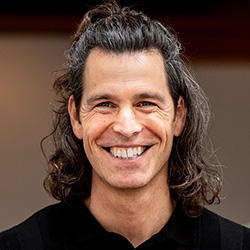

Search Results: connection
-
Explore gratitude with Jori & Jim Manske to stay present and flourish in everyday life.
-
Explore the similarities and differences between NVC and Inner Relationship Focusing.
-
Shift from cerebral empathy to intuitive listening—tune into body cues and inner feelings.
-
Bring your inquisitive mind and open heart to explore principles that ground the practice of NVC.
-
If you’d like to bring more joy and fun into your workplace, listen to this trainer dialogue for NVC tips and tools from some of the leading experts in the industry.
-
Trainer Tip: When someone is in pain and lashing out, might be a time when empathy is needed most. Empathizing in these moments can be very challenging. Mary offers a few words of ecouragement for these situations.
-
Join CNVC Certified Trainer Dian Killian to find out how to speak up in a way that ensures you're heard, even in challenging situations.
-
Trainer Tip: All people long for understanding. It is such an easy thing to give, yet rarely do we see its importance in creating peace of mind.
-
Turn feedback into a path for learning and growth by understanding what makes it challenging.
-
Build thriving communities through dialogue, a collaborative, heart-opening path to shared purpose.
-
Rediscover ease and joy in love by transforming how you perceive, receive and embody connection.
-
Join Dian Killian and discover the power of imagery and metaphor in deepening your empathy practice. This segment from her 6 session course explores how visualizing sensations, emotions, and needs through metaphorical language can enhance the connection during empathy guessing, particularly in somatic-based approaches.
-
Oren J. Sofer offers an NVC approach to navigating tough moments—balancing honest self-expression with deep listening. Discover how centering yourself, naming your intentions, and hearing the other person first can create the understanding needed for true connection.
-
Sometimes the empathy you offer may stimulate disconnect or a sense of boundary crossing for the other person. To identify what might have contributed to the disconnect you can look for the signs, the level of attunement and the context, and examine what's happening in you. Read on for more.
-
Oren Jay Sofer shares how to stay present and grounded during difficult conversations, especially when we feel judged or criticized. He describes how awareness of bodily sensations—such as tension, trembling, or the urge to react—can help us channel our energy in a constructive way. Oren highlights the shift from focusing on others’ judgments to identifying our own feelings and needs, which restores clarity and empowerment. By learning these skills, we can transform reactive moments into opportunities for understanding, connection, and self-awareness.
-
How do you solve a conflict? By not trying to solve it! Yoram suggests building your conflict resolution muscles by practicing connecting to the needs behind the conflict instead. Check out this excerpt from Session 1 of his 2021 course, Connecting in Conflict and the Art of Navigating Dialogue. Listen.
-
Trainer Tip: Never compromise; sharing resentment 50/50 is not a sustainable solution.
-
Listen to this telecourse recording with CNVC Certified Trainer, Alan Rafael Seid, to explore what is meant by social change in the context of NVC, and learn how Nonviolent Communication can be a powerful ally for creating social change.
-
Listen to Miki discuss two strategies for bringing NVC into the workplace in ways most likely to be well received. First Miki explains why it's best to focus more on needs than feelings in business environments. Second, she talks about unpacking needs into phrases as a way of enhancing workplace connection.
-
Jim and Jori Manske offer insight into blame, how it arises and how do we handle being blamed and our own blame of others.
Quick Links

Stay in Touch!
We value your privacy, won't share your email address and you can easily unsubscribe any time.



















